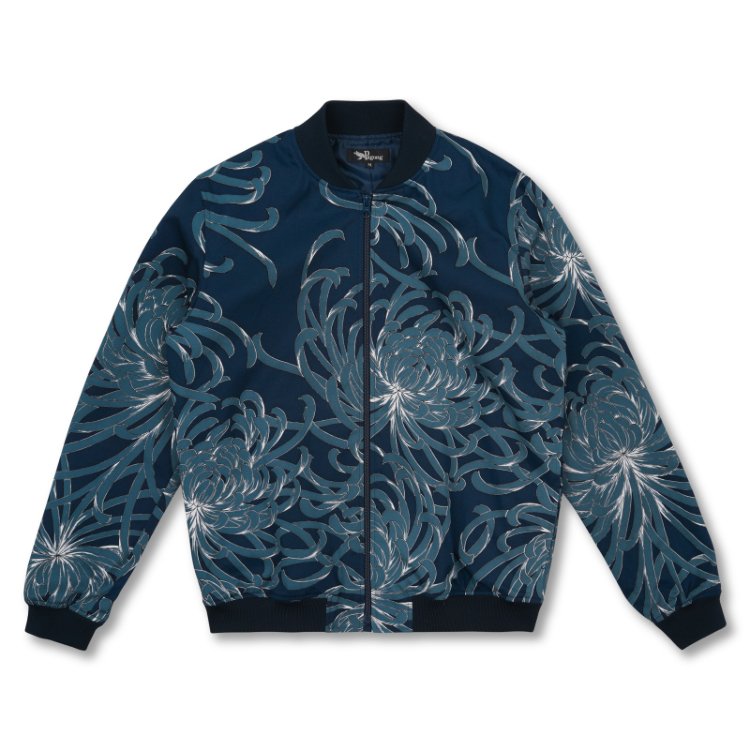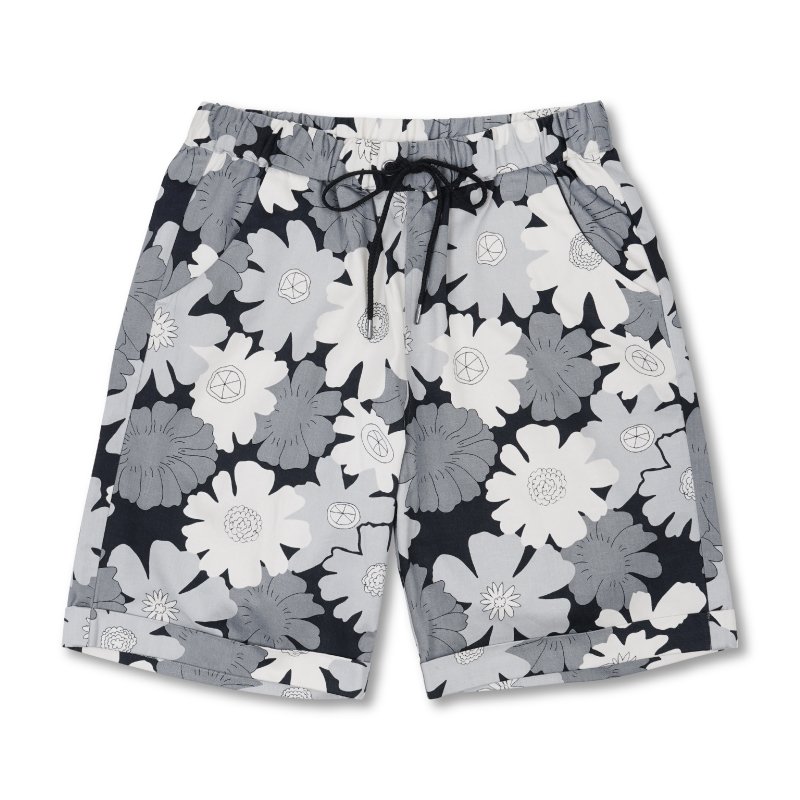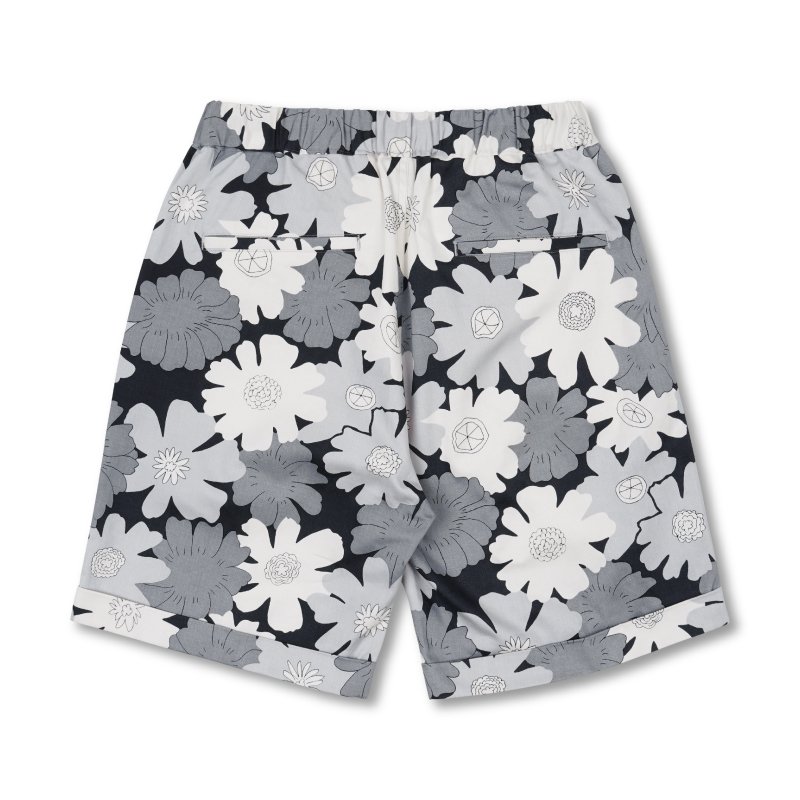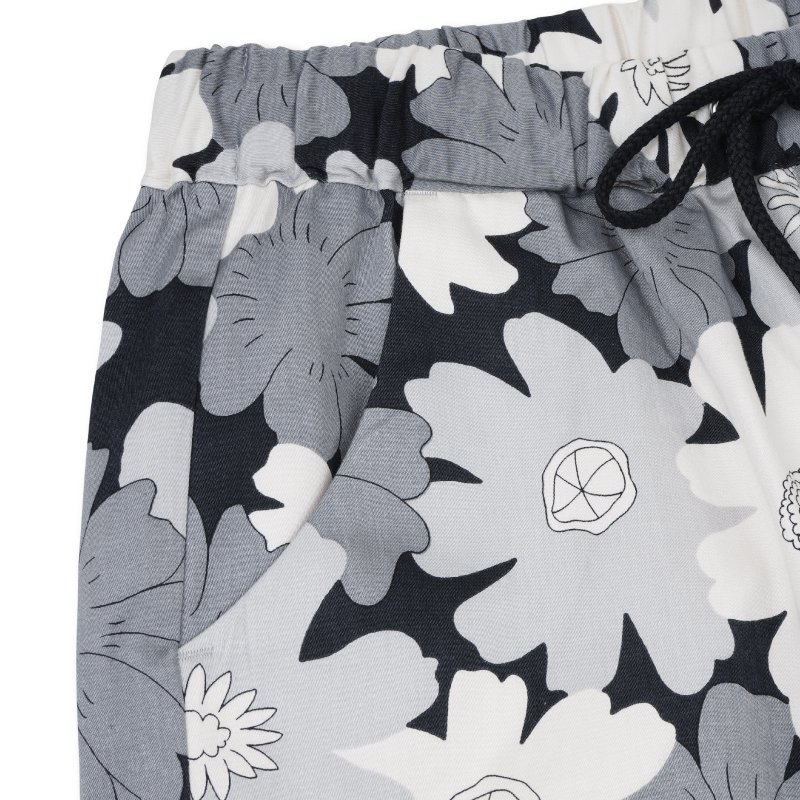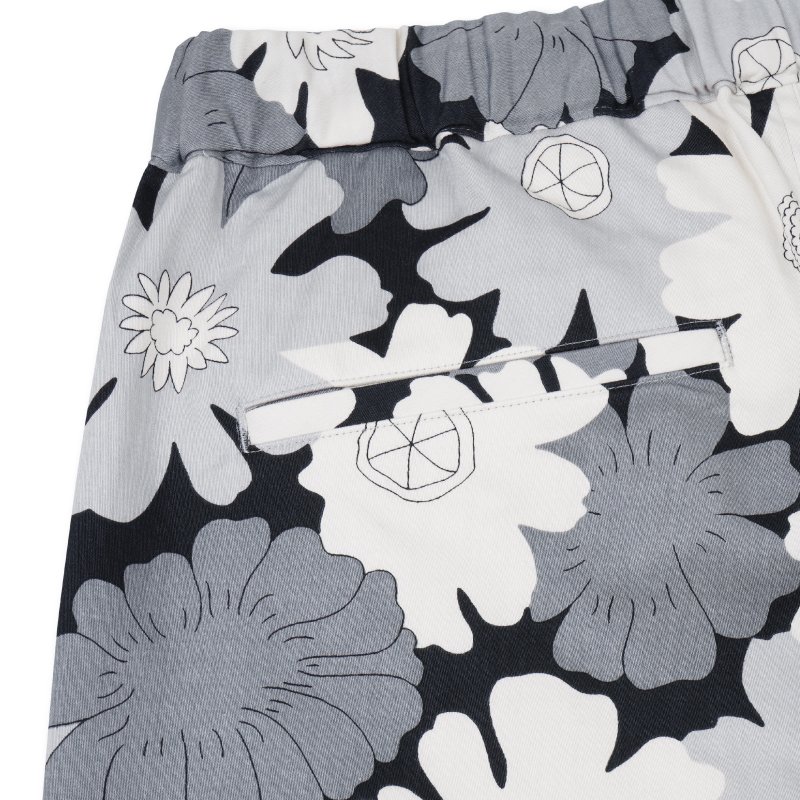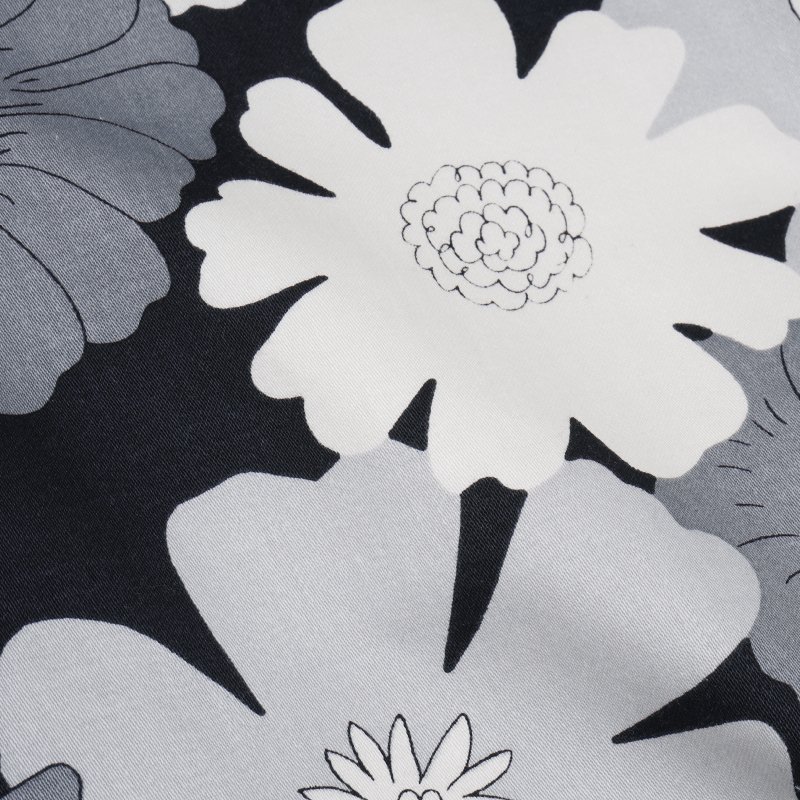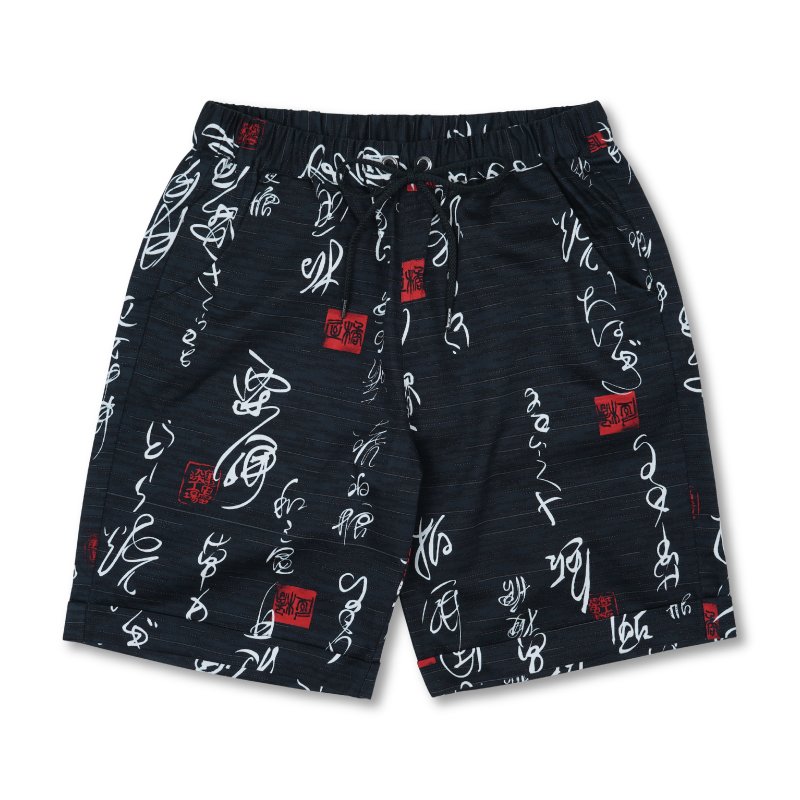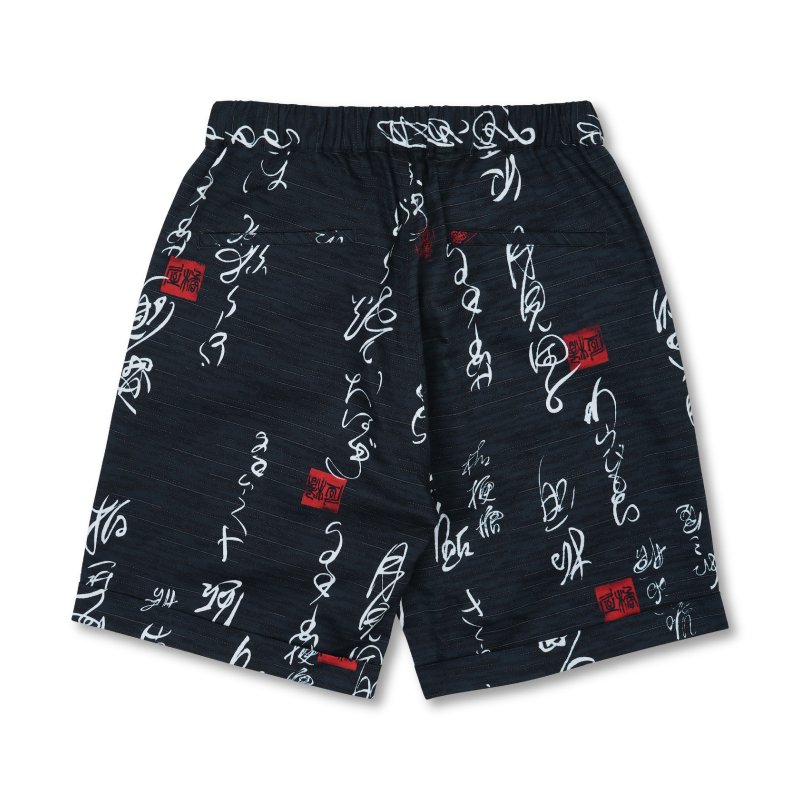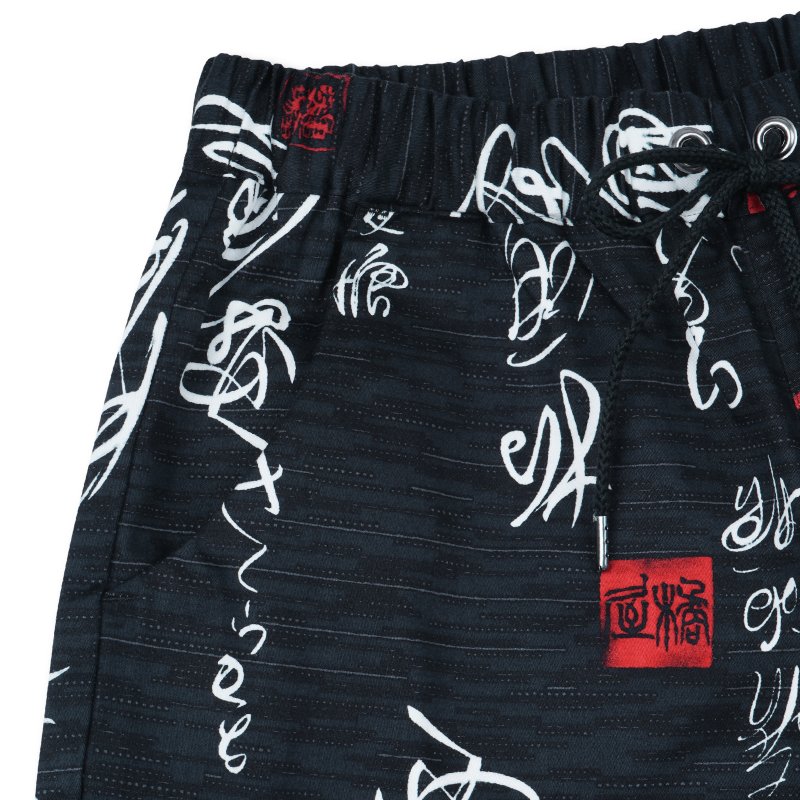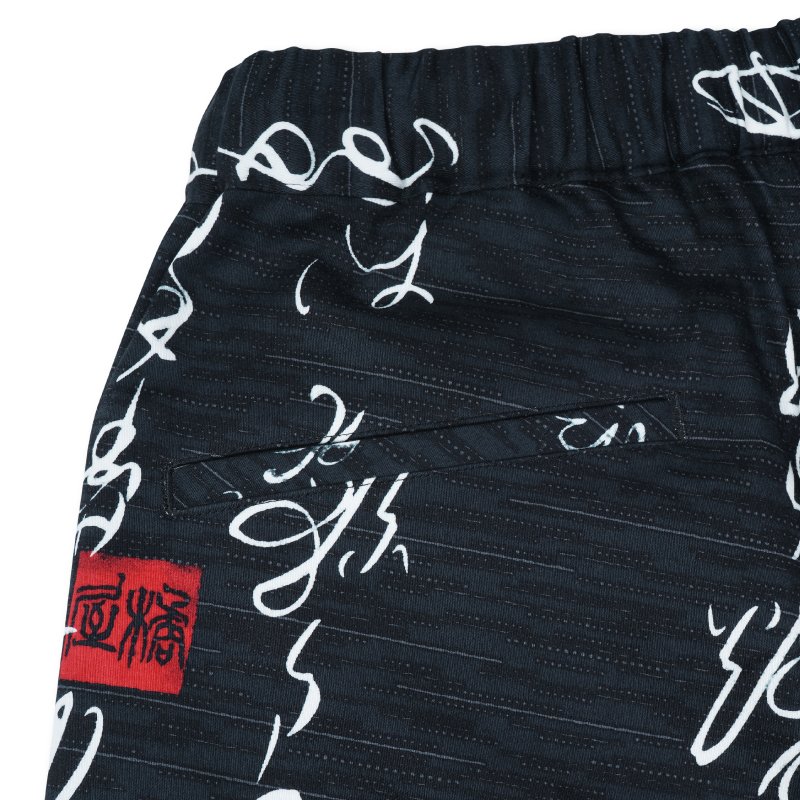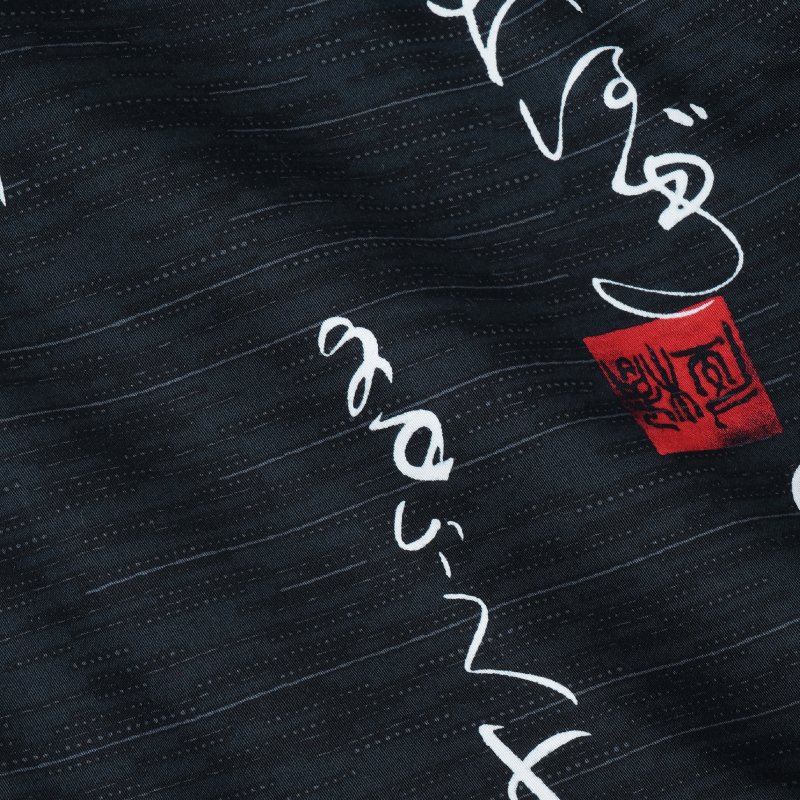RANGIKU "DANCING CHRYSANTHEMUMS" KIMONO PANTS
Color / Purple and Yellow Care Instruction
Japanese name/ 乱菊 ( Rangiku )
-About-
Starting from the late Taisho era (1912-1926), more modern and exuberant patterns became fashionable in Japan. This depiction of “dancing” chrysanthemums was made during Japan’s “Art Nouveau Movement”, and became a very popular design for those who wished to represent the fashion style of a new era.
Kiku, or chrysanthemums, were introduced to Japan from China in the Nara-era(710-794. In Japan, the chrysanthemum has become a symbol for the emperor and appears on the Japanese imperial seal.
In the language of flowers, the chrysanthemum carries the symbolic meaning of devoted love, loyalty, happiness, longevity, and joy.
・85%Cotton 15%Linen
・Made in Japan
・Hand-wash
・Hang to dry
・Use pressing cloth to iron
・Currency : US Dollar (USD)
Color / Purple and Yellow Care Instruction
Japanese name/ 乱菊 ( Rangiku )
-About-
Starting from the late Taisho era (1912-1926), more modern and exuberant patterns became fashionable in Japan. This depiction of “dancing” chrysanthemums was made during Japan’s “Art Nouveau Movement”, and became a very popular design for those who wished to represent the fashion style of a new era.
Kiku, or chrysanthemums, were introduced to Japan from China in the Nara-era(710-794. In Japan, the chrysanthemum has become a symbol for the emperor and appears on the Japanese imperial seal.
In the language of flowers, the chrysanthemum carries the symbolic meaning of devoted love, loyalty, happiness, longevity, and joy.
・85%Cotton 15%Linen
・Made in Japan
・Hand-wash
・Hang to dry
・Use pressing cloth to iron
・Currency : US Dollar (USD)
Color / Purple and Yellow Care Instruction
Japanese name/ 乱菊 ( Rangiku )
-About-
Starting from the late Taisho era (1912-1926), more modern and exuberant patterns became fashionable in Japan. This depiction of “dancing” chrysanthemums was made during Japan’s “Art Nouveau Movement”, and became a very popular design for those who wished to represent the fashion style of a new era.
Kiku, or chrysanthemums, were introduced to Japan from China in the Nara-era(710-794. In Japan, the chrysanthemum has become a symbol for the emperor and appears on the Japanese imperial seal.
In the language of flowers, the chrysanthemum carries the symbolic meaning of devoted love, loyalty, happiness, longevity, and joy.
・85%Cotton 15%Linen
・Made in Japan
・Hand-wash
・Hang to dry
・Use pressing cloth to iron
・Currency : US Dollar (USD)
KIMONO Pants =SIZE (inches)=
| Waist | Length | Rise | Leg opening | |
| FREE | 27.5~35.5 | 39 | 14.5 | 11.5 |

If there is anything we can help you with, please feel free to let us know.
MAIL to : Pagong Kyoto
Contact Form >> www.pagongkyoto.com/contact










